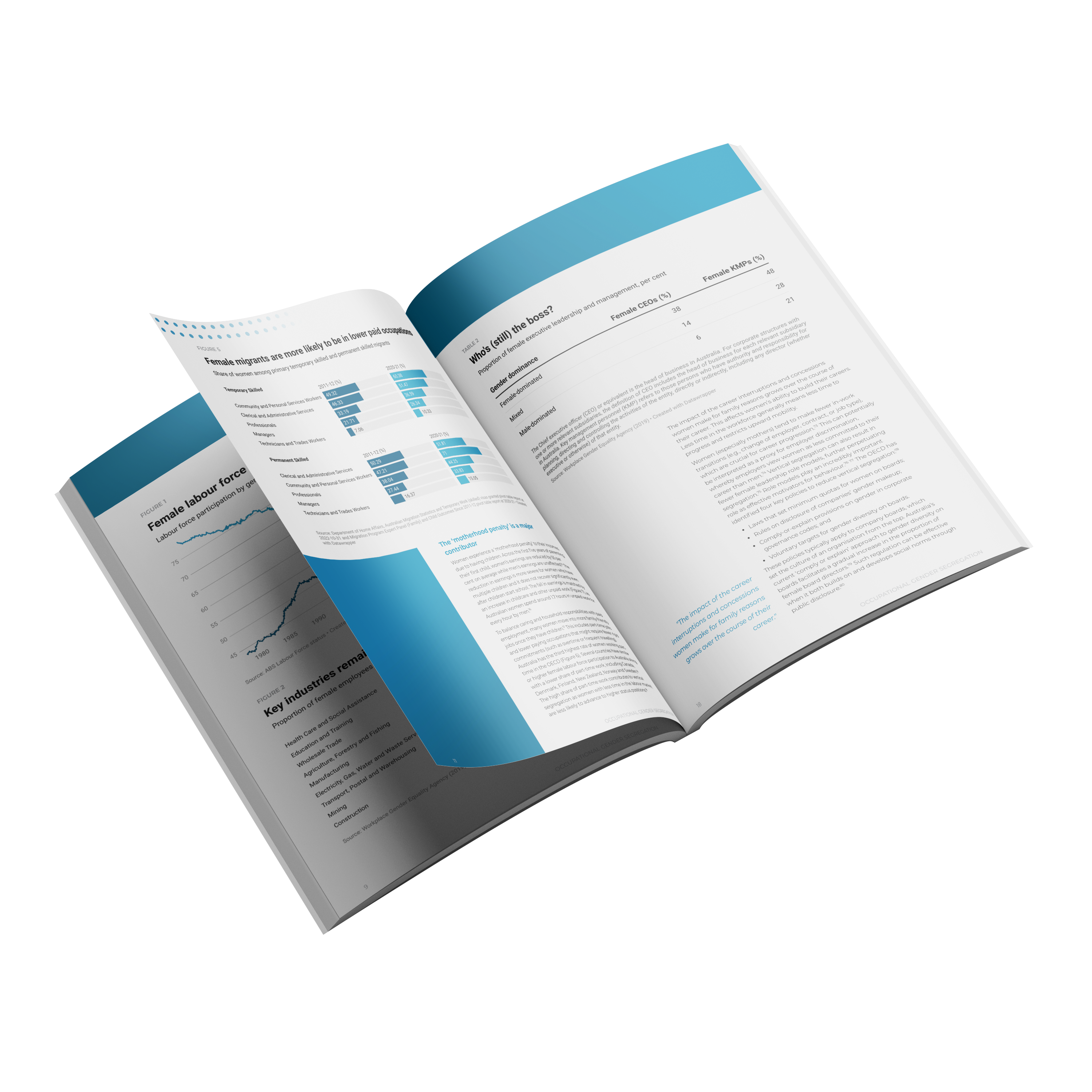PROGRESS 2050: Toward a prosperous future for all Australians
06/03/2023
Despite the ever-increasing numbers of women in the workforce, attaining leadership roles remains elusive. For women with culturally and linguistically diverse backgrounds (CALD), their rise to leadership positions is doubly difficult.
More than a quarter of Australians were born overseas, yet research by Women on Boards last year found just 12.8 per cent of board members were non-Anglo-Celtic and of this, about three per cent were Indigenous.
Given 51.5 per cent of Australian residents were born overseas or have a parent who was born overseas, we are clearly missing out on a significant opportunity to benefit from this unique asset – our multicultural and dynamic society.
For Aboriginal and Torres Strait Islanders, studies have reported a triple bind – female, non Anglo-Celtic, and Indigenous – where not only are they working women in a male-dominated economic system, but they have to manoeuvre through a predominantly white society.
One measure that organisations can implement is to embed curated mentoring and sponsorship opportunities for marginalised women, including CALD and Aboriginal and Torres Strait Islander women.
Mentors and sponsors are both professional relationships that have been found to build high-performing workplaces, however a sponsor tends to be a more active and engaged advocate of their protege’s leadership potential, and likely to provide opportunities for career advancement. This directly contributes to supporting the pipeline of women into leadership positions.
Research from Diversity Council Australia has found that CALD female talent are, on the whole, ambitious, capable and resilient. Migrants tend to have postgraduate qualifications, but they often lack access to meeting the right people, which is crucial to establishing critical skills and gaining local knowledge. CALD and Indigenous women, as well as working mothers with young children, tend to miss the opportunities created from informal networking activities, such as after-work drinks.
Working with mentors and sponsors will allow minority women to consider these missed opportunities while identifying other strategic ways to expand their visibility within their workplace and their industry. A high-level mentor or sponsor models self-advancing behaviour, which is particularly helpful for minority women, helping them gain confidence and determine the skills they can improve on.
Mentors and sponsors do not necessarily have to be CALD or identify as women themselves. Mentees and proteges benefit from having more than one mentor, and each professional relationship might be targeted for a particular purpose – whether it be to improve a particular skill or to reach a particular network.
A study published in the Harvard Business Review found that 71 per cent of CEO respondents reported formal mentoring arrangements were responsible for improvements in their organisation and 84 per cent said these arrangements helped them become proficient in their roles faster. Studies have also seen some improvements in employee retention and promotion rates due to mentoring programs. Industry research has also seen evidence that CEO mentoring – where leaders themselves are given the opportunity to work with a mentor – can positively impact company performance.
A mentoring relationship between different genders and racial backgrounds also creates benefits for the entire organisation. This measure, when implemented in workplaces, also contributes to overcoming stereotypes, bias and prejudice. The more we get to know our colleagues, the more we see them as unique individuals beyond the stereotypes attributed to them by their gender or race.
CALD and Aboriginal and Torres Strait Islander female leaders experience more barriers to success, such as access to customised leadership programs. Mentors and sponsors can draw them closer to positions of leadership and also advocate for inclusive and transformative ways of dismantling existing institutional barriers. Recent research I conducted with academics from the University of Adelaide – Associate Professor Clemence Due and Professor Martha Augoustinos – found that the burden of overcoming these barriers still lies with CALD and Aboriginal and Torres Strait Islander women. For these women, success is still greatly underpinned by understanding of the systemic barriers that persist and the implications of their intersecting identities (i.e. gender, race and culture, migrant status, as well as motherhood). In addition to developing targeted leadership programs, CEDA’s research into occupational gender segregation recommends that employers take an active role in breaking cultural barriers and stereotypes through blind hiring, flexible work practices and reducing the motherhood penalty.
An organisational focus on inclusive recruitment means there is a commitment to hiring the best candidate, regardless of race, cultural background or gender.
Organisations should take action now to encourage their current leaders to mentor or sponsor emerging leaders, to ensure they don’t miss out on the next generation of talent.

